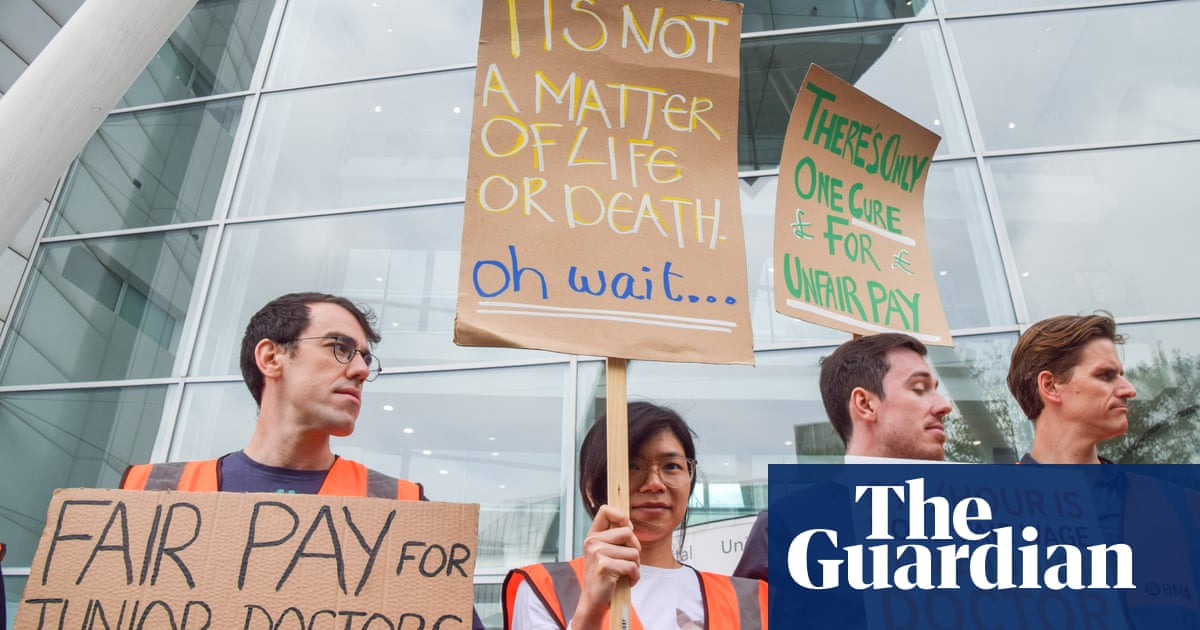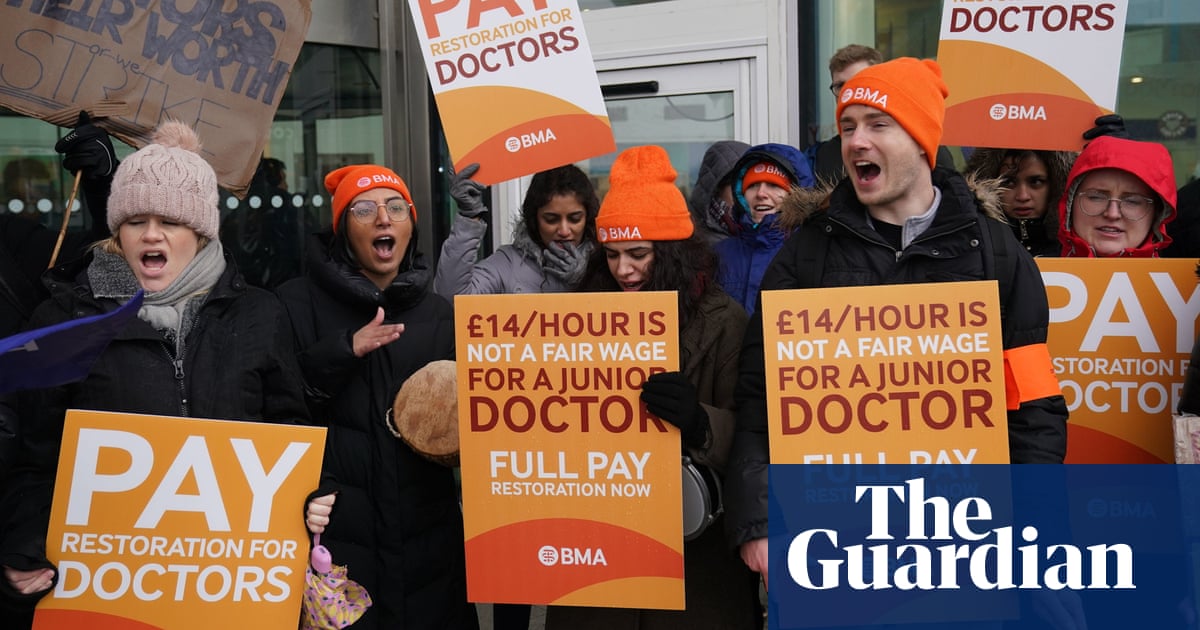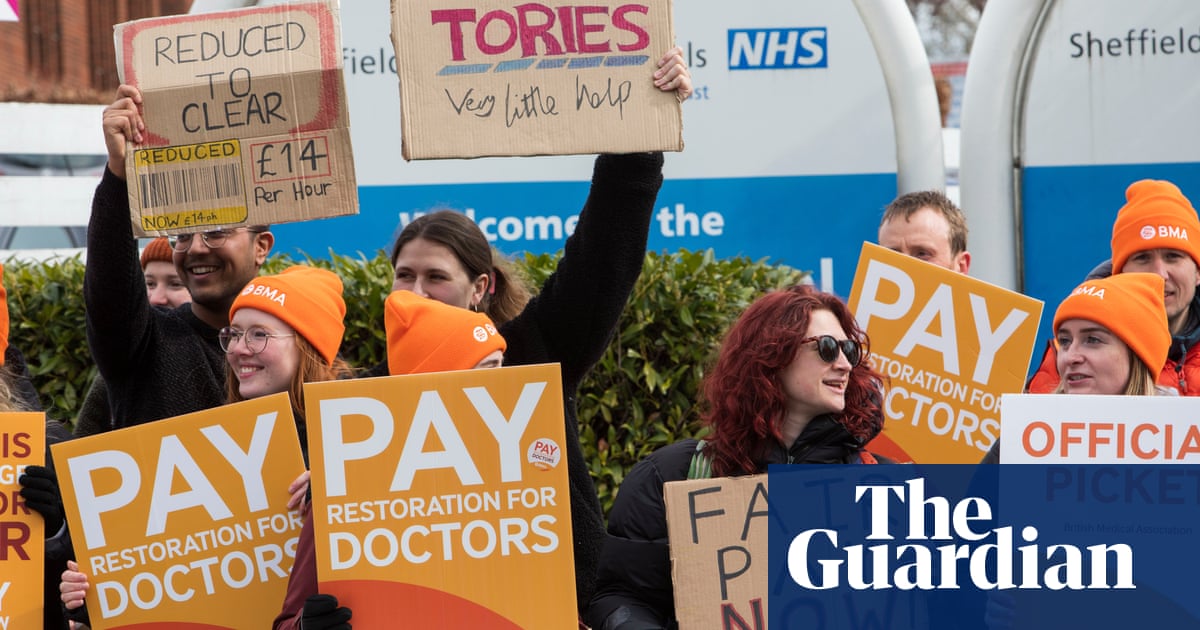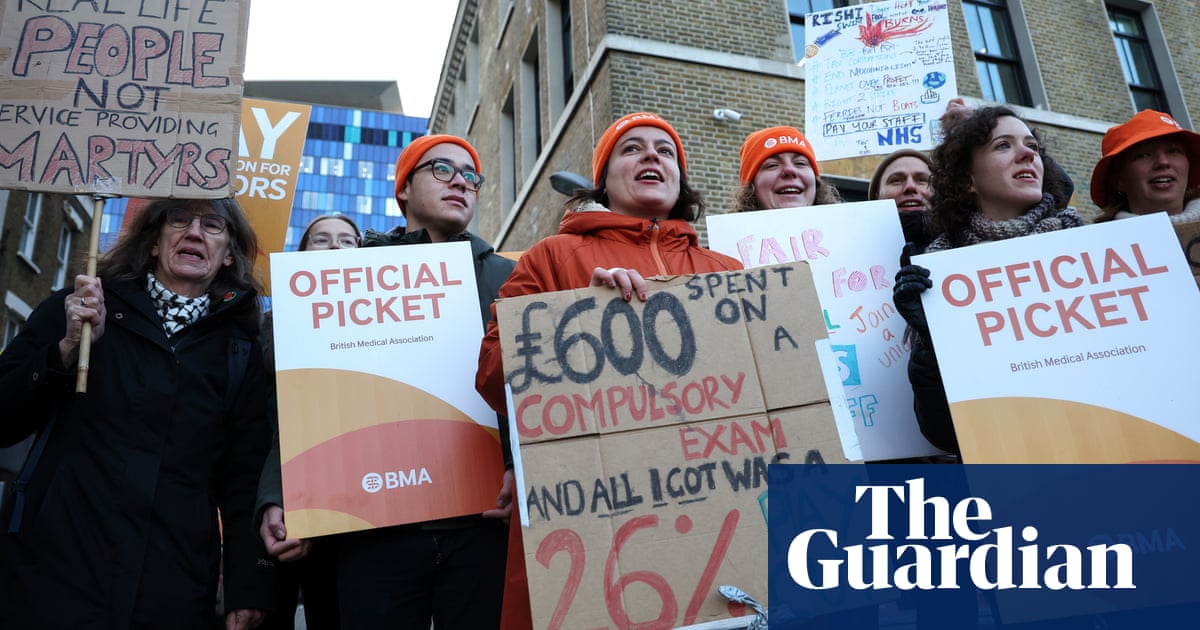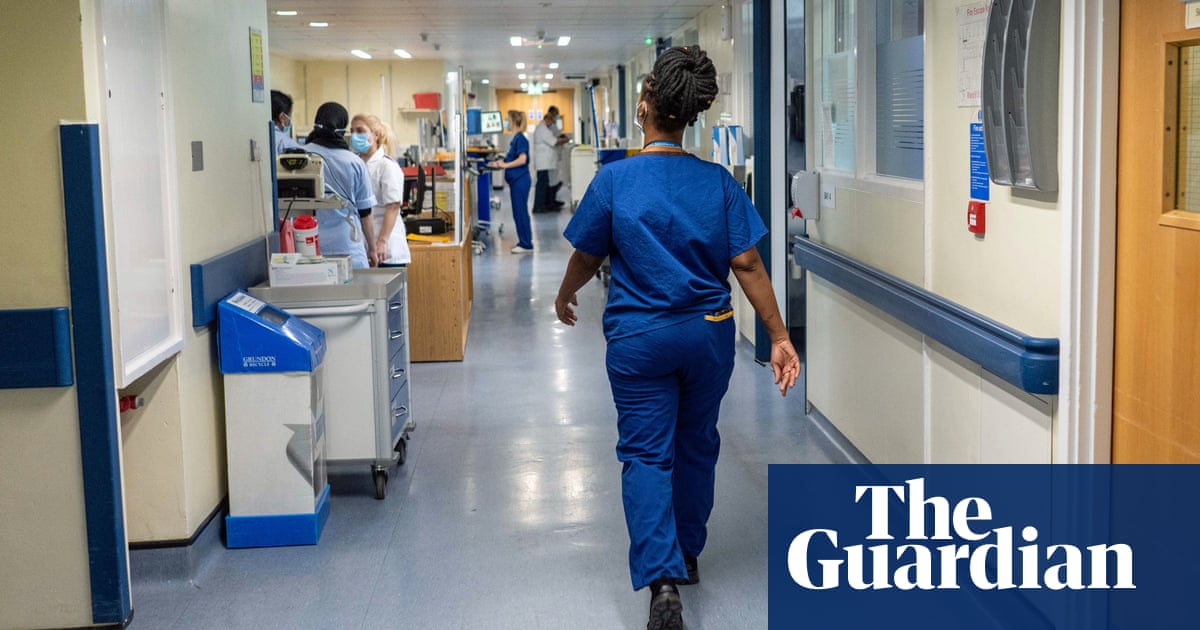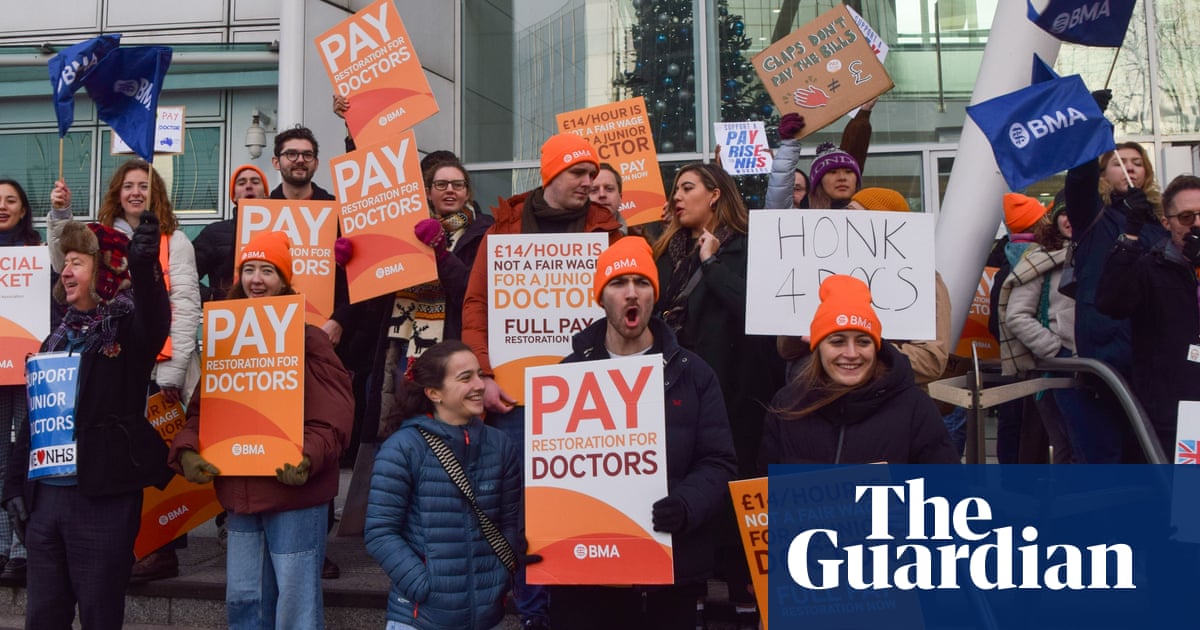
Patients have been harmed as a result of doctors striking this year, and others needing time-critical treatment will be at risk during next month’s walkout in England, hospital bosses have said.
Cancer patients and women having induced or caesarean section births will be in danger of damage to their health unless junior doctors in those areas of care abandon their plans to strike for six days in January, they said.
People awaiting urgent eye surgery risk permanent sight loss unless the British Medical Association (BMA) lets junior doctors keep working in that area, according to NHS Employers, which represents health service trusts in England.
Its intervention comes amid mounting concern in the NHS that it may prove impossible to maintain patient safety in high-risk, time-sensitive areas of treatment when tens of thousands of junior doctors stage what will be the longest strike in NHS history from 3 January, when hospitals are facing what is often the service’s busiest week of the year.
It represents a significant escalation of tensions in the increasingly bad-tempered dispute between junior doctors and the government over the tactics they are using to pursue their 35% pay claim.
Junior doctors’ leaders said they had been forced to call strikes because a deadline they had agreed with the health secretary, Victoria Atkins, for her to make them a final offer to try to end their dispute had passed without her doing so. They derided her claim on Thursday that many junior doctors were “deeply uncomfortable” with the coming stoppage and urged her to reopen negotiations to try to avoid it going ahead.
NHS Employers, which represents health service trusts on staffing issues, sent its warning in a letter to Prof Philip Banfield, the leader of the BMA, the main doctors’ union.
The chief executive of NHS Employers, Danny Mortimer, told Banfield in the letter that patients who needed to be treated urgently would be in danger of damage to their health during the strike if the care they would usually receive was not available because there were too few staff to provide it.
He identified the areas of care as “fast progressing cancers; time-critical inductions and urgent ‘elective’ C-sections; [and] corneal transplant surgeries”.
Mortimer said some people needing these sorts of care had already been harmed by some of the strikes since March, and he urged the BMA to do what it could to avoid any repeat of avoidable damage to patients.
He said: “I understand these areas were identified following an assessment of the patient harm caused by previous periods of strike action and where the adverse impact of strike action by doctors on patients was clearest.”
He did not specify which doctors he was referring to. Junior doctors and consultants – senior hospital doctors – in England have gone on strike this year, though consultants have paused their campaign while voting on a new pay offer.
Mortimer did not elaborate on what damage previous strikes had caused or how many patients had been harmed. NHS England, which put together the assessment, declined to elaborate on it.
Mortimer said it was “not tenable” for consultants and other staff to cover the work usually done by junior doctors who would be on strike. This was because the NHS usually descended into its “winter crisis” in early January, when the demand for care was at a peak while many staff were on leave, and hospitals could get so full that they would be unable to admit patients.
The extra risk to patients from junior doctors withdrawing their labour during a week that the NHS usually found the toughest of the year meant that the BMA should agree England-wide “derogations” – exemptions – for those three areas of care and for all urgent and emergency care in acute and mental health hospitals during the strikes, Mortimer told Banfield.
The BMA, which this week rejected a plea from patient groups, health charities and NHS bosses for derogations to apply during this week’s three-day strike, appears unlikely to agree to Mortimer’s request.
Responding to the letter, Banfield emphasised that the union was “strongly committed to ensuring that patients are safe during strikes”. He did not respond directly to Mortimer’s plea and stressed that the BMA talked regularly to NHS England and NHS Employers about patient safety and would continue to do so.
The BMA and NHS England have held discussions about possible derogations during the strikes by doctors that have taken place over the past nine months.
Meanwhile, Atkins was accused on Thursday of deliberately belittling junior doctors after describing them as “doctors in training”.
The health secretary made the comments in an aside on BBC Breakfast on Thursday. Junior doctors make up almost half of all doctors in the NHS in England and are often in post for a decade or more before moving to consultant level.
As doctors entered their second day of a three-day strike in England, Atkins showed no sign of shifting her position. Describing negotiations on pay across the NHS, Atkins said: “The last cohort is that of junior doctors, or doctors in training as I prefer to call them, and they sadly, to my great disappointment, they walked out of our negotiations and then called the strike.”
Dr Heather Williams, a consultant medical physicist, wrote on X: “‘Doctors in training’ is deliberately used by Victoria Atkins to belittle here, as if the health secretary is speaking to undergrad students rather than established members of hospital staff responsible for patient care – pretty much everyone who isn’t a consultant.”
Many others in the medical and political world expressed outrage at the phrase. Dr Suzi Gage, a research lead at the Wellcome Trust, wrote: “I agree with her that ‘junior doctors’ is a bit of a misnomer, but not because they are doctors in training!!! Because they are fully qualified and undervalued.”
The Labour MP Chris Bryant wrote: “They’re doctors. Doctors. Not doctors in training.”
The alternative manifesto: Securing the future of the NHS On Tuesday 27 February, 8pm-9.15pm GMT, join Denis Campbell, Narda Ahmed, Siva Anandaciva and Greg Fell as they discuss what an alternative manifesto for health and social care could be. Book tickets here or at theguardian.live.







